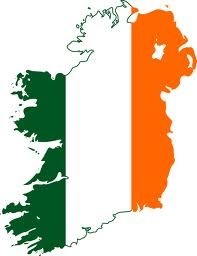A survey carried out by Ireland’s National Consumer Agency (NCA) has found that the price of many commonly prescribed medicines varies widely across Ireland.
The nationwide survey of pharmacists, which covered 132 stores, was carried out by the NCA in February 2013 and was published on 25 March 2013. The survey investigated the prices paid by patients for common prescription medicines and found that all 39 of the drugs investigated showed ‘huge differences in prices, both locally and nationally’.
Across the country the survey found that the prices of the 39 drugs ranged from 37% to 199%, with the average percentage difference being 56%.
The largest difference in price for an individual product within a local area was for gastric reflux medication Losec Mups (omeprazole) 20 mg. The largest price difference was 122%, found in the county of Waterford, with prices ranging from Euros 22.43 to Euros 49.69. The second highest price variation for a single prescription medicine within a region was found in Dublin at 112% (or Euros 22.37) for proton pump inhibitor Zoton Fastab Tabs (lansoprazole) 30 mg.
Dublin was found to have the highest average price variation at 44%, while Waterford had the lowest average price variation at 27%. In fact, Dublin was found to be the most expensive area, with drug prices being 4.4% above the national average, whereas Galway had the lowest average prices at 4.5% less than national average prices.
NCA noted that prescription medicine prices for consumers, who are not on a medical card or other state scheme, are made up of the cost of the medicine to the pharmacy, the retail mark-up and a dispensing fee, which is a fee charged by the pharmacist for preparing the prescription and for any advice they give.
In relation to dispensing fees it was found that a range of different policies apply across pharmacies, from a standard dispensing fee to the dispensing fee varying with the price of the prescription medicines and in some instances a dispensing fee is not charged. For pharmacies that apply a dispensing fee it ranged from Euros 3.15 to Euros 7.00.
In conclusion, and in order to save money, the NCA therefore recommends that patients:
- Check the price of prescription medicines from a number of different pharmacies in the area.
- Do not assume any pharmacy is cheaper, either independent or chain, and include all when looking for the best price.
- In cases where the patient does not want to change pharmacist, try negotiating the price, e.g. by asking the pharmacist to apply one dispensing fee on a number of prescribed items or to reduce the dispensing fee when a patient is getting prescriptions regularly at the same pharmacy.
Related articles
Cost savings from use of generic medicines in Ireland
Use of generic medicines in Ireland
Generics substitution: Ireland’s plan for reference pricing
Permission granted to reproduce for personal and educational use only. All other reproduction, copy or reprinting of all or part of any ‘Content’ found on this website is strictly prohibited without the prior consent of the publisher. Contact the publisher to obtain permission before redistributing.








 0
0











Post your comment